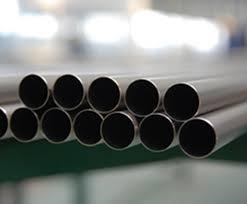Nickel alloys refer to a class of alloys with comprehensive properties such as high strength and certain oxidation and corrosion resistance at a high temperature of 650-1000°C.
According to the main performance, it is subdivided into nickel-based heat-resistant alloys, nickel-based corrosion-resistant alloys, nickel-based wear-resistant alloys, nickel-based precision alloys and nickel-based shape memory alloys. Superalloys are divided into iron-based superalloys, nickel-based superalloys and cobalt-based superalloys according to the different substrates.
Britain first produced the nickel-based alloy Nimonic 75 (Ni-20Cr-0.4Ti) in 1941; in order to increase the creep strength, aluminum was added, and Nimonic 80 (Ni-20Cr-2.5Ti-1.3Al) was developed. The United States in the mid-1940s, the Soviet Union in the late 1940s, and China in the mid-1950s also developed nickel-based alloys.
Nickel-based superalloys are the most widely used. The main reason is that one is that more alloying elements can be dissolved in nickel-based alloys and can maintain better structural stability. Second, it can form a coherent and ordered A3B type intermetallic compound γ[Ni3(Al, Ti)] phase as a strengthening phase, so that the alloy can be effectively strengthened, and a higher temperature than iron-based superalloys and cobalt-based superalloys can be obtained. strength. The third is that chromium-containing nickel-based alloys have better oxidation resistance and gas corrosion resistance than iron-based superalloys.
Huzhou Nanxun Yintuo Special Material Technology Co., Ltd. is committed to producing Alloy Steel Seamless Pipe. If you need to buy seamless pipe-related products, you can contact us at any time.



